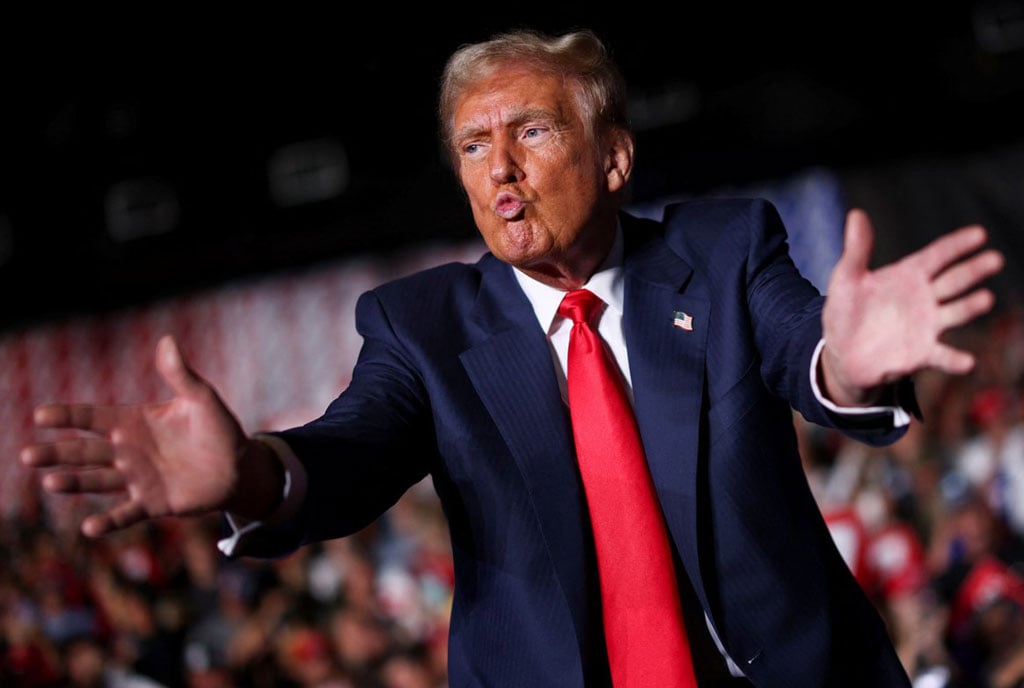Trump win: In elections no side is wrong

US President elect Donald Trump. PHOTO/REUTERS
What you need to know:
- In democracy, there is no wrong side, only my side and your side.
In the US elections, Donald Trump achieved a decisive victory over Kamala Harris, winning 312 to 226 in the Electoral College (58 Percent to 42 percent) and securing the popular vote 50.5 percent to 47.9 percent.
The Republican Party also gained control of the Senate, House, and the majority of state governorships, marking an unparalleled level of power in the U.S. government.
For many outside the US, this result was unexpected; global opinion heavily favoured Kamala, but the election demonstrates a core tenet of democracy: given the freedom to choose, citizens make the choices they believe best serve their interests. The question is, Did Americans vote wrongly or did they vote rightly?
Trump’s individual character presents an image of one who should not be voted for but ironically also he mirrors the typical American's attitudes and behaviour except for the wealth he purportedly has. Trumps demeanour, the language he uses when communicating- when there are no cameras (the profanities/curses he uses), how he relates with other people are all typical of how most Americans are be it Whites, Blacks, Latinos, Asians all behave. He once bragged about not paying taxes and said 'That makes me smart', he echoed a sentiment many relate to, though few might admit publicly.
Trump’s limited international knowledge and average level of education all mirror the ordinary American who is not interested much in international politics and what is happening around the world (some rural Americans still think Idi Amin is Uganda’s president).This familiarity endeared him to voters who saw a leader who embodies their views, not a polished career politician. They picked a candidate who identifies with them, acts like them, thinks like them and hates bureaucracy and politicking like them, one who they thought presented to them a better future and they picked one in their image in the man Trump.
Issues like Immigration which now affect almost all stable countries around the world, unemployment which is related to immigration with immigrates taking jobs from locals, bureaucracy and corruption in government led by career politicians who don’t break a sweet when lying, foreign wars supported by government at the expense of the taxpayer, freedom of Worship, Abortion and LGBTQIA+ rights, all contributed in the voters decision.
As opposed to what the Democrats were offering, the Democratic ticket of Biden/Harris and Harris/Walz symbolised traditional politics. Biden’s decades in office and Harris’ reliance on establishment advisors painted them as representatives of the political elite. Many felt that Harris, despite her relatively new role, was directed by "the powers that be". Trump, by comparison, presented himself as a maverick, prioritising action over conforming to political expectations.
It is now easy to believe Trump’s narrative that the 2020 election was rigged, how else would he and the majority of candidates he supported win this one decisively.
The wave of populism has arrived and this election reflects a larger trend of populism, with leaders increasingly chosen based on relatability over formal qualifications. Globally, we may see more “semi-educated” but popular leaders rising through movements that echo the frustrations of ordinary people rather than elite ideals. Some political parties have already noted this shift and are adjusting their strategies accordingly.
Ultimately, Americans did not choose wrongly, they voted for someone who identifies with them and represents them. Elections are not about a “right” or “wrong” choice; they are about the individual and collective identities of the voters and what they think will work for them. In democracy, there’s no wrong side, only my side and your side.
Mr Richard Ndungutse, Credit Analyst/Political Observer
[email protected]



